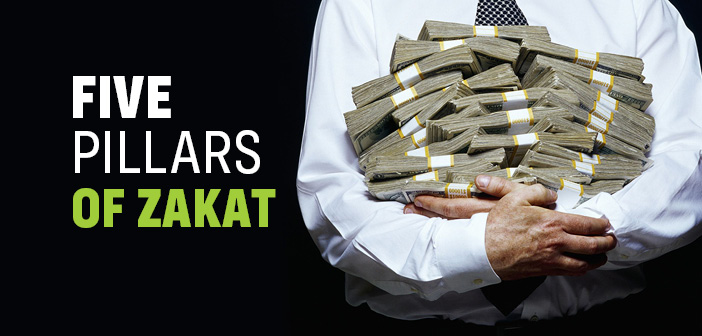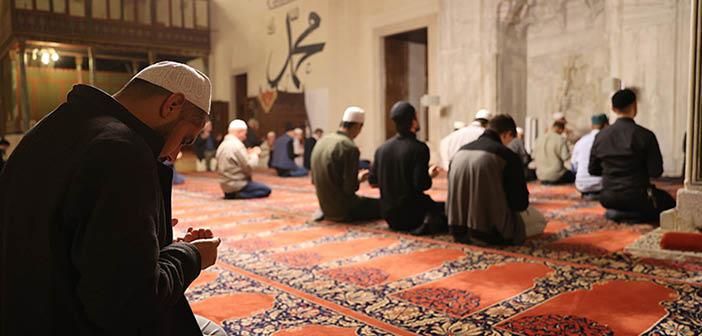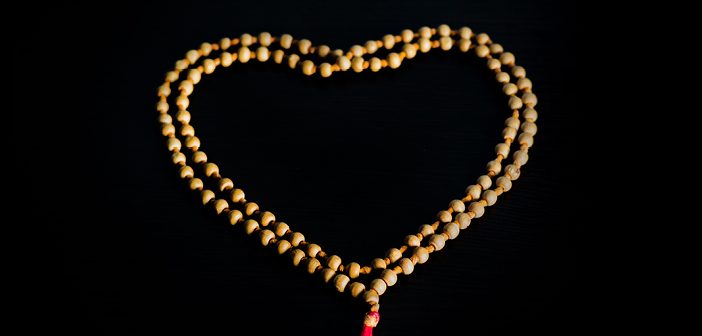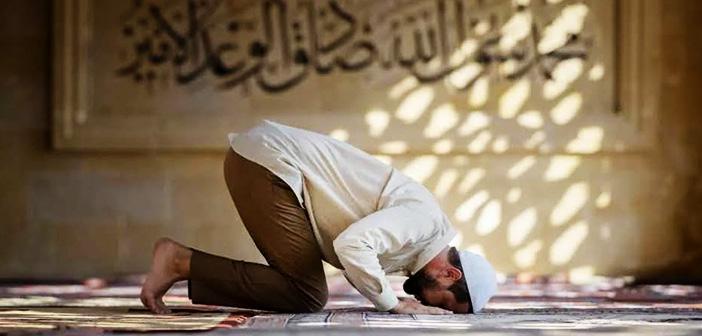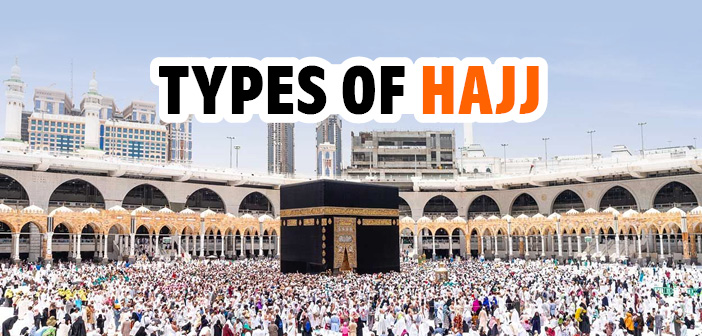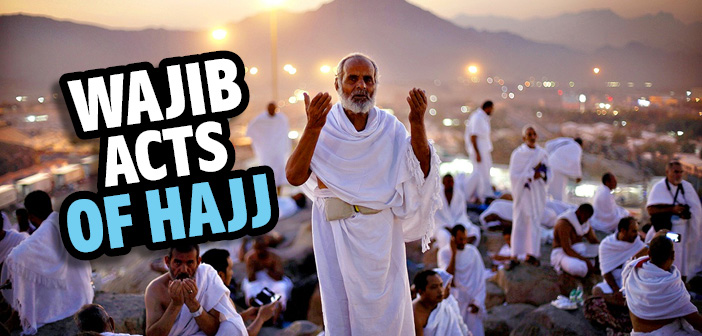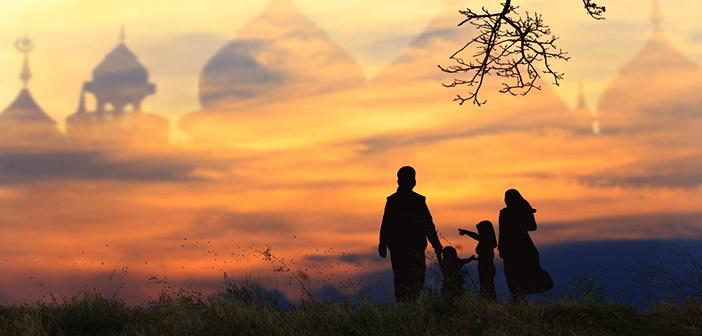
Importance And Virtue Of Pilgrimage To Mecca
What is the importance and virtue of the pilgrimage to Mecca?
Pilgrimage is the fifth pillar of Islam and it is a duty that has been continuing to resurrect the hearts of the believers from the first prophet Adam (a.s.) to the last Prophet Muhammad (J). It is a sublime way of worship making us realize the secret of the words“ die before you die.”
Pilgrimage is not a new invention of Islam, prior to Islam pilgrimage was established in Mecca. However, the Arabs had changed it into a kind of immoral ceremony. The tribe of Quraish who had an eminent place among other Arab tribes used to worship Ka’aba dressed in a normal way. However, the other Arabic tribes both men and women, used to visit the Ka’aba and circumambulate around it naked. It was up to the Quraish tribe to cover them and dress them, and if they do not give clothing to the visitors, they would continue to worship in a naked state. Also, these people used to sacrifice animals to Allah and used to spread their blood on the walls of the Ka’aba. Instead of using the meat of the sacrifices in a beneficial way, they used to burn their flesh. Islam erased all these evil pilgrimage rites that were made up by the Arabs and many other superstitious acts. According to Islam, the main purpose behind the acts of all worship is to remember Allah, to ask his forgiveness and to glorify His words. Islam, by removing the superstitions that were added by the Arabs purified the Hajj returning it to its original pure form.
Pilgrimage possesses many benefits for the believers both in this world and in the next. Allah’s limitless mercy manifests itself in the times of pilgrimage in these sacred lands. Those Muslims, who are engulfed in the mercy and forgiveness of Allah, meet each other in an atmosphere of love and respect and establish bonds of brotherhood among themselves.
Through Hajj we take lessons from the submission of the prophets Abraham (a.s.) and Ishmael (a.s.) and can appreciate their strong trust in Allah. As related in the Qur’an, when Abraham (a.s.) received the commandment to sacrifice his son for the sake of Allah, he submitted to the Divine Will. In the same vein, Ishmael (a.s.) stoned Satan who wanted to urge him to revolt against his father and escape from being slaughtered. As Ishmael (a.s.) slaughtered the Satan, we should stone our low desires and ego. The Hajj is also an enormous gathering of different nations and different colors that reminds us of the Day of Judgment, where people will be gathered before the Divine court without discrimination of color and nationality. This shocking scene will break the barriers of race and nationality, making all of humanity brothers and sisters, hence making the bond of faith as the strongest one among all other bonds.
In Hajj, all the Muslims wear white seamless garments, replacing their normal garments. This symbolizes the soul’s separation from the dress of the ego and its elevation over the human weaknesses, the low desires of the flesh.
A SPECIAL PLACE IN THE LIVES OF MUSLIMS
The place in which the Hajj is performed has also a special place in the lives of Muslims. These are holy places in terms of the Divine blessings and spirituality, possessing Divine signs. In these places, one is always reminded of the limitless mercy of Allah and His endless blessings. The Qur’an describes the holiness of these Divine climates as the signs of Allah and alternatively as the sacred places of Allah.
Another purpose behind the pilgrimage is that the pilgrim experiences the same things that the companions and the Prophet (J) lived through in these holy lands. These holy lands that were watered by the tears of the lovers of Allah, from Adam (a.s.) to Muhammad (J), engulf so many recollections of the Holy Prophet (J) and their companions. Those who attentively fulfill the rites of the Hajj, as a matter of fact, follow in the footsteps of these holy persons.
In the holy lands, we remember the prayers of the previous prophets of Allah, such as Abraham (a.s.) who said: “Our Lord! Make of us Muslims, bowing to Thy (Will), and of our progeny a people Muslim, bowing to Thy (will); and show us our place for the celebration of (due) rites; and turn unto us (in Mercy); for Thou art the Oft-Returning, Most Merciful. (Baqara, 2:128)
In this way, we repeat the same prayers as they have made and receive the blessings of Allah when we are blessed by the acceptance of our supplications.
The Muslims are always burning with desire to visit these holy lands. The poets wrote their best poetry about these lands. One of them addressing the morning breeze sings:
O the morning breeze! If one day you pass through the holy lands, take my greetings to the Prophet (J) of man and jinn.
Those who could not afford to visit these places would send their greetings through the winds. They would see off those who were going on pilgrimage with their best prayers.
In particular, the friends of Allah who could not control their love for these lands, would often go and pray in these holy lands through the miracle of tayy al-makan, meaning that the long distances were folded up for them and they would reach these lands in a few seconds.
Some of the lovers of Allah even carried those who had no means to go for Hajj in their miraculous ways. The following story is a well-known one among the Sufis, through which the great Sufi master Azîz Mahmûd Hudâî turned to Sufism.
At that time Hudâî was the judge of Bursa, an important Ottoman town. One day an interesting court case was presented to him. A woman came to him complaining:
“O Honorable Judge! My husband intends to go to Hajj every year but due to poverty he could never set out for the journey. He was very insistent to go to Hajj this year as well, but he could not. However, a few days before pilgrimage time he disappeared and came back five or six days later claiming that he visited the holy lands and became a pilgrim. How is it possible to be a pilgrim in such a short time? I want to get a divorce from such a great liar.”
In order to check this story out, Hudayî summoned the husband to the court and asked him whether his wife’s reports about him were correct or not. The husband answered:
“ Honorable Judge! Whatever my wife reported about me is correct. I have really gone for pilgrimage. I have even met some other pilgrims from Bursa and I entrusted with them some of my possessions so they could bring them back home.”
The judge was shocked, and asked the husband:
“How is it possible that you went on pilgrimage and came back in less then a week?” Since at that time, with even the fastest means of transportation, it was a long trip, taking many months.
The man answered: “Sir! I was very sad at being unable to go on pilgrimage. I had gone to visit a friend of Allah, Mehmed Efendi and told him of my plight. He told me to close my eyes and when I opened them again I was there at the Ka’aba”.
The judge, who had never witnessed such a strange case in his life before, denied the truthfulness of these words and did not accept the man’s testimony.
However, the man still under the influence of this extraordinary trip and sacred visit, asked the judge the following question:
“O Respected Judge! Satan the enemy of Allah can also go around the world in a second why then cannot a friend of Allah in one moment go on pilgrimage.”
The Judge, Mahmud Hudâyî, finding this answer very reasonable postponed his verdict until all the pilgrims returned from the holy lands in order to check whether he was there or not. After many weeks the pilgrims returned, and Hudâyî asked them whether this man was with them at the Ka’aba fulfilling the duty of pilgrimage. To his surprise, they confirmed that he was there. The Judge had to reject the case against him since the man was not a liar.
After this interesting incident, Hudâyî found Mehmet Efendi, a well known Sufi of the times and through him Hudâyî reached the well known Sufi master Uftâda. He became a follower of him for spiritual training. After his spiritual training under the guidance of Uftâda, Hudâyî reached a very high station in the Sufi path and himself became a great Sufi master. His tomb, in the Uskudar district of Istanbul, is frequented by visitors throughout the day.
In short, one does not intend to see the sands of the deserts but to visit Abraham (a.s.)’s habitat and his son Ishmael (a.s.)’s offspring. One goes there to see the places in which the Prophet (J) was born, lived and spread Islam, in order to inhale the same air that was breathed by the Prophet (J). It is to follow in the footsteps of the Prophet (J) and to see his signs in these lands as stated in the Qur’an: “Lo! the first Sanctuary appointed for mankind was that at Becca, a blessed place, a guidance to the peoples.”(Al-i-Imrân, 3:96)
Therefore, those who can look at these places with the eyes of their hearts can see the blessings of Allah and as a result their love for Him circulates in their veins. Wherever they look they see the signs, hence they experience spiritual ecstasy, losing themselves. As a result, they continuously remember Allah, chanting His names and praising His glory. They spend their time in these holy lands with utmost respect and care towards the Divine signs as stated in the verse:
“That (shall be so); and whoever respects the signs of Allah, this surely is (the outcome) of the piety of hearts. (Hajj, 22:32)
Hence, Hajj is not only a physical act of worship, it is above all a spiritual act of worship. Al-“Hajj al-Mabrûr,” a good Hajj, as described by the Prophet (J) consists from beginning to end of goodness and beautiful acts and includes repentance from sins, supplications to Allah and asking forgiveness, which are the highest form of worship. Therefore, the hearts attain the blessings and mercy of Allah. A pilgrim, as a matter of fact, promises Allah to keep the highest standards of morality and acts of worship after he returns to his home as well. The following supplication of Abraham (a.s.) while he was building the Ka’aba guide us in how to pray in these holy lands:
“Our Lord! and make us both submissive to Thee and (raise) from our offspring a nation submitting to Thee, and show us our ways of devotion and turn to us (mercifully), surely Thou art the Oft-returning (to mercy), the Merciful.” (Baqara, 2:128)
The loving hearts of Muslims who go on pilgrimage realize that they are walking on the same path that the Prophet (J) once walked on and feel great excitement. As an example, when they walk over the hill of Safâ, they visualize the Prophet’s sermon to the unbelievers inviting them to Islam. The master of the worlds, addressed the Meccans from this hill saying:
“If I tell you that enemy is approaching behind these hills to attack you so take your precautions, would you believe me?”
The Meccans answered: “We believe in you even though we do not see behind the mountain. Since you are Muhammad the trustworthy, (Muhammad al-Amîn), we never doubt your words.”
Upon this the Prophet (J) said:
“As you would trust me in this news, you should also believe me that there is only one Allah who has created this world. The idols you worship are but pieces of stone, earth or wood. Leave these idols and believe in one Allah. Know that Allah has sent me as a prophet to you.”
Hearing this invitation to this Divine message, his uncle Abû Lahab and other non-believers retorted: “Have you called us for this?” Then they departed from the Prophet (J) without accepting his invitation although they accepted the truthfulness of his call, they submitted to their base desires and followed their ancestors’ crooked ways.
However, the Prophet (J) never gave in to their hostile attitude and tried his best to serve the Divine truths to the hearts of humanity like serving the water of life to the thirsty. In pilgrimage we have a chance to contemplate all these brave acts of the Prophet (J).
REFLECTIONS OF THE PROPHET(J)'S TEACHING ON THE QUR'AN IN MECCA "DÂRU'L-ERKAM"
In Mecca, we can hear the reflections of the teaching of the Qur’an by the Prophet(J) in Dâr al-Arqam. (This is the house of Arqam, a companion of the Prophet(J) where he could teach Islam secretly to the early Muslims). We can extend our cups to fill from the blessings of the lives led by the companions after the emigration to Madinah. When we visit the cave of Thawr, we have our share from the three spiritual nights that the Prophet spent with Abu Bakr and we join their talks. Through this spiritual association between the Prophet (J) and Abu Bakr, the roots of the golden chain of (Naqshbandiyya) was established. We can taste the sweetness of faith experienced in love and ecstasy in this cave. In Madinah, we experience the memories of the Prophet (J) and his companions, and then we return back to Mecca, this time imagining the conquest of the Mecca by the Prophet (J). When we look at the mountains around Mecca, we can visualize the fires that were burned by the companions to scare the Meccans before the conquest. We can hear as if the call of the adhan were raised by Bilâl again, as he, for the first time, did after the conquest of Mecca, lifted the azan over the Holy Ka’aba. We can hear the Prophet (J) reciting the verse: “And say: Truth hath come and falsehood hath vanished away. Lo! falsehood is ever bound to vanish.” (Isra, 17:81)
After visualizing all these events, we can internalize these outward signs in our hearts, thinking that the Ka’aba of our heart has been polluted by the idols of base desires, hence by the spiritual power we attain through the Hajj we try to knock over these idols and keep our heart clean for Allah only. In that way, we make our heart the location of Divine manifestations. From the weakest to the strongest believer the duty of Hajj contains a vast treasure of Divine manifestations according to their perception capacities. Therefore Hajj is a comprehensive act of worship presenting a vast amount of spiritual benefits to the Muslims. Through Hajj, a believer exposes himself to the rain of Divine blessings and gets rid of the shackles of the nafs (tempting soul).
At Arafât, the Muslims gather in the hundreds of thousands in order to supplicate to their Lord. This vast meeting also reminds us of the Day of Resurrection, when all human beings will be gathered in the Presence of their Creator. Today all of them, dressed in the same garments, are equal. They are all helpless and in need of Divine Mercy. It is the practicing of the Hereafter in this world and preparing for that day from today. Muslims present their most sincere prayers for Allah and repent of their sins. The believers open a new and clean page for the rest of their lives, promising Allah to lead a life of obedience and submission to Allah.
Arafât is the microcosm of Resurrection Day, heads and feet are uncovered, there are only for men, two pieces of cloth, one covering the top another the bottom. No one has the power to look around, thinking only of his or her own destiny.
Arafât is a place of forgiveness and taking refuge.
At Arafât, arising in the morning and in groups getting together is a reminder containing very old memories for Muslims as old as the history of humanity in the world. The first human being, our father Adam (a.s.) and mother Eve had eaten the forbidden fruit and were removed from paradise to different corners of the world. Adam (a.s.) asked the forgiveness of Allah for the sake of Prophet Muhammad (J) knowing that he had a high place in the sight of Allah. Allah accepted his supplication and they were forgiven. Allah sent an angel who guided him to Mecca. Meanwhile, Eve who had fallen in the area of Jeddah was also guided to Mecca by an angel. They met once again on the plain of Arafât, on the day of “arafe” (day before the standing in Arafat) in the afternoon. They cried for their sins and together asked for the forgiveness of Allah.
Out of His endless mercy and love for humanity Allah accepted their prayers and permitted their offspring to make the same supplications at the same time every year until Judgment Day. Allah promised a comprehensive forgiveness and salvation for those who followed the footsteps of Adam (a.s.) in asking His forgiveness in the same place. Therefore on the day of Arefe, the pilgrims go up to the plain Arafât to ask the forgiveness of Allah.
After this re-union, Allah the Almighty ordered Adam (a.s.) and Eve to take Mecca as their home. In remembrance of this, Mecca is called Ummu’l-Qurâ, the Mother of Cities. Hence, we can see the universal aspects of Islam in the pilgrimage. In Mecca, all human beings regardless of color, nationality, and financial status become brothers and sisters, remembering that they all come from the same father and mother, namely Adam (a.s.) and Eve. Over there, the rich, the poor, the ruler, the ruled, the lettered and the unlettered, all stand in the same square, dressed in the same seamless garments. Although there are many political and social problems in Islamic countries, the atmosphere of peace and brotherhood in these holy lands is really fascinating. People experience peaks of sacrifice and mutual love that would set an example to the rest of the nations all over the world. Many international institutions and organizations could only dream of that amount of love. We can even claim that no other religion achieved so much in harmonizing so many different colors and nations in such a successful manner. The reason is that Islam places spirituality and religion as the basis of brotherhood, not any material benefits. Any other brotherhood or solidarity based on material benefits is bound to collapse due to people’s hunger for power and wealth. Only when the souls are educated in self-sacrifice and love can there then be real brotherhood.
Muzdalifah, referred to in the Qur’an as “al-Mash’ar’ul-Haram”, the sacred gathering, is a place replete with the manifestations of Divine Love and Mercy. This is a place where the hearts should forget all else except the Power and Kingdom of Allah and expose himself to the manifestations of Divine blessings.
After the days of Adaq (votive offerings) are completed, the pilgrims sacrifice animals (“Kurban”) to glorify the name of Allah in memory of the spiritual sacrifice of Abraham (a.s.), and through the sacrificing of animals in the imitation of Abraham (a.s.), we receive the spiritual state he possessed. Those who received this blessing and felt the Abrahamic (a.s) breezes from their sacrifice, automatically recite the following verse of the Qur’an, which is in fact the declaration of Abraham (a.s.): “For me, I have set my face, firmly and truly, towards Him Who created the heavens and the earth, and never shall I give partners to Allah.” (An’am, 6:79)
“Say: “Truly, my prayer and my service of sacrifice, my life and my death, are (all) for Allah, the Cherisher of the Worlds: He hath no partner. This am I commanded, and I am first of those who surrender (unto Him).” (An’am, 6:162)
The great prophet Abraham (a.s.) recited the following words on his way to Damascus from Bâbil(Babylonia) as witnessed by Allah.
He said: “I will go to my Lord! He will surely guide me! “O my Lord! Grant me a righteous (son)!” (Saffat, 37:99-100)
This verse indicates that there is a trip that should be taken from one’s heart to Allah, Who is the best of the friends. Through this trip a believer can reach Allah.
The Qur’an continues to narrate the story of how Abraham’s (a.s.) supplications were answered:
“So We gave him the good news of a boy, possessing forbearance.” (Saffat, 37:101)
And when he attained to working with him, he said: O my son! surely I have seen in a dream that I should sacrifice you; consider then what you see. He said:
O my father! do what you are commanded; if Allah please, you will find me of the patient ones. (Saffat, 37:102)
So when they had both submitted their wills (to Allah), and he had laid him prostrate on his forehead (for sacrifice), We called out to him.
“O Abraham! Thou hast already fulfilled the vision. Lo! thus do We reward the good. For this was obviously a trial- (Saffat, 37:103-106)
“And We ransomed him with a momentous sacrifice: And We left (this blessing) for him among generations (to come) in later times: “Peace and salutation to Abraham!” Thus indeed do We reward those who do right. Surely he was one of Our believing servants.” (Saffat, 37:107-111)
Hadrat Abraham (a.s.), due to a Divine sign, from Allah took Hagar and their son Ishmael (a.s.) to Mecca. Then he returned to his other wife Sarah. He would sometimes visit his family and son. On one of these visits, Prophet Abraham (a.s.) had seen Mecca in his dreams. In this dream he was sacrificing his son Ishmael (a.s.). Abraham (a.s.) doubted the origin of this vision, whether it was divinely inspired or a temptation of Satan. However, having seen the same dream three times he was certain that the dream had a Divine origin. Two of these dreams were seen in the last two days before the current time of Eid-ul-Adha (Festival of Sacrifice) and the third dream was seen on what is now the first day of Eid.
According to sources, Allah the Almighty, asked Abraham (a.s.) to slaughter his son since he had promised Allah that if he had a son he would sacrifice him for Allah. Allah tested him whether he would keep his promise or not. However, Abraham (a.s.) did not break his promise and told his mother Hagar to wash him and to spread musk over him. Abraham (a.s.) told Hagar that he was going to take him to a friend. He also told Ishmael (a.s.) to take with him a knife and rope, telling:
“O my son! I will make a sacrifice to Allah.”
Together they set out to the place named Arafât where the pilgrims gather on the day of Arafeh. Satan was waiting for an appropriate time, and disguised like a man, he approached our mother Hagar and asked her: do you know where Abraham (a.s.) is taking your son?
She replied: To his friend.
Satan retorted: No he is taking your son to slaughter.
Hagar replied: No he likes his son very much.
Satan explained: Abraham (a.s.) will slaughter him because Allah commanded so.
Hagar showed great trust in Allah and replied: If Allah has commanded, then this is a good thing, we trust in Him.
Satan having failed to tempt our mother Hagar, this time hurried to Ishmael (a.s.) in order to tempt him. He asked the same questions to Ishmael (a.s.):
“Do you know to where does your father take you?”
Ishmael (a.s.) replied: “To fulfill the commandment of Allah.”
Satan provoked: “You know that your father will slaughter you.”
Upon hearing this Ishmael (a.s.) insulted the Satan: “Go home the cursed one! We follow the commandments of our Lord lovingly.” Then he threw stones to him.
This time he rushed to tempt Abraham (a.s.) saying:
“O old man! Where do you take your son? Satan has cheated you in your dream, your dreams are not divinely but satanic temptations.“
Abraham (a.s.) said: “O Satan! Go away from me immediately!”
He collected seven pebbles and stoned Satan three times in different places. Hence the habit of stoning Satan has been taken from Father Abraham’s (a.s.) memory, this practise is repeated by all the pilgrims. This unequalled sacrifice has been eternalised by Islam by making the stoning an essential part of the rituals of pilgrimage.
When they were going to Arafât from Mina, there was great excitement among the angels. They were telling each other:
“We glorify Allah! (How strange is it that) a prophet is taking another prophet in order to present him as a sacrifice.”
Abraham (a.s.) explained the nature of their trip and the commandment of Allah concerning his son Ishmael (a.s.) saying:
“O my son! In a vision, I have been ordered to slaughter you as a sacrifice to Allah”
Ishmael (a.s.) asked: “O my father! Is it Allah who commanded you to offer me as a sacrifice?”
Abraham (a.s.) answered in the affirmative. Upon hearing this answer Ishmael (a.s.) gave the following reply:
“Father! Do as you are commanded. Allah willing you will see that I will be a forbearing person.” In that way he showed that he would gladly sacrifice his life in order to fulfill the commandment of Allah.
According to the narration, when Abraham (a.s.) put the knife to the neck of Ishmael (a.s.), having seen the seriousness of the situation Gabriel, the archangel became more excited and troubled than ever before. At that moment, the first thing Gabriel did was to remove the sharpness of the knife. The Mercy and Help of Allah the Almighty came at that point since Abraham (a.s.) proved that he would sacrifice even his most valuable son for the sake of Allah. As a replacement Allah sent a ram from paradise. They together sacrificed the ram and glorified Allah for this favor.
Hence, when Muslims sacrifice animals to Allah, these incidents should be kept in mind. The main purpose is to show that we take lessons from the complete submission of Prophet Abraham (a.s.) and to practice these characteristics in our lives. Otherwise, slaughtering an animal possesses no value in the eyes of Allah if the spiritual meaning is lost. The Qur’an, in order to emphasize this reality, warns us:
“It is not their meat nor their blood, that reaches Allah: it is your piety that reaches Him” (Hajj, 22:37)
After offering their sacrifices to Allah, the pilgrims shave their heads in order to show that they are Allah’s slaves. Before the advent of Islam, when a master freed his slave he would first shave his head, as a symbol that this person was a slave. Therefore, the Muslims repeated this tradition in order to show that they are only the slaves of Allah and will follow His orders. In other words, this shaving of the head is symbolically the dedication of our lives to Allah’s will.
Mina, where Hadrat Abraham (a.s.) and Ishmael (a.s.) stoned Satan, is a holy place that bears witness to their submission and trust.
Stoning Satan also symbolizes the stoning of one’s internal Satan i.e. his nafs. It is also remembering how Hadrat Abraham (a.s.), Ishmael (a.s.) and Hagar successfully stoned the Satan, not yielding to His temptations.
Stoning in the old times meant cursing since people would curse their enemy thorough stoning. The attribute of Satan, in Arabic, “rajîm”, as a matter of fact, means “the stoned” signifying that he is “cursed.”
There is another significance in stoning which reminds us of the event in the history of Islam when Abraha, a Christian general from Yemen, wanted to destroy the Ka’aba. As narrated in the Qur’an, Abraha jealous of the Ka’aba, attacked Mecca with his big army including some elephants. However, Allah the Almighty, destroyed this army by sending an army of birds that dropped tiny stones onto the army. Through these stones the mighty army of Abraha was destroyed. Hence, stoning is done in the memory of this incident.
In short, stoning Satan means to curse Satan and to clean the heart from Satanic influences in order to be able to turn to Allah with full dedication. The Prophet (J) states in a tradition that the aim of stoning is nothing else but to establish the remembrance of Allah. (Mishkat, Tirmidhi)
In another hadith, the Prophet (J) describes Hajj as stoning Satan, running between the hills of Safâ and Marwa, and circumambulating the Ka’aba. The main purpose behind all these acts is the remembrance of Allah. (Tirmidhi, Nasâî).
Safâ and Marwa are the two hills between which Hagar was running in desperation in order to find water for her and her thirsty son Ishmael (a.s.). Then, Allah the Almighty gave them the well of Zamzam, which is till today giving water to the pilgrims. In order to remind us of this incident, the running (sa’y) between these two hills has been made among the rituals of the pilgrimage.
In order to show the significance of these two hills, Allah, Most High, states n the Qur’an: “Behold! Safa and Marwa are among the Symbols of Allah. (Baqara, 2:158)
The Ka’aba is a very important center that all Muslims face during their ritual worship. It is the place where the hearts of Muslims beat. As the heart is the location of the manifestations in the human sphere, the Ka’aba is the location of Divine manifestations in the worldly sphere. In other words, the Ka’aba possesses the same place as the heart possesses in the human body. In the Ka’aba we have the place of Abraham (a.s.) who is called by Muslims as Khalilullah (the friend of Allah). Allah, the Almighty, commanded the pilgrims to perform the prayer of circumambulation behind the place dedicated as his position. In that way they will follow his steps in submission to the will of Allah.
There is also the Black Stone, which is respected by all Muslims. Muslims kiss and greet this stone symbolizing their acceptance of their servanthood to Allah. This is also an indication of giving up the animal desires of the ego and the temptations of Satan.
This blessed stone also marks the beginning and end of the pilgrimage rituals. Although all the stones of the Ka’aba have been replaced in restorations, the Black Stone preserved its place, set in a corner. It has been kissed by millions of lips, and touched by millions of blessed hands. Hence, though it is an ordinary stone, it became a symbol of showing our love for the Ka’aba. Hadrat Omar states this reality when he kissed the Black Stone as
Abdullah b. Sarjis reported: I saw ‘Umar b. Khattab (Allah be pleased with him) kissing the Stone and saying: “By Allah. I am kissing with full consciousness of the fact that you are a stone and that you can neither do any harm nor good; and if I had not seen Allah’s Messenger (may peace be upon him) kissing you, I would not have kissed you.” (Muslim, Book 007, Number 2914)
In short with all these characteristics, the Ka’aba is a shadow of the Divine Kingdom and a source of Allah’s Mercy and Blessings. Allah’s attributes of Mercy and Forgiveness manifest themselves here more than anywhere else in this Holy Land. It is the source of Divine Illumination and the sun that illuminates our hearts.
Source: Osman Nuri Topbaş, ISLAM SPIRIT AND FORM, Erkam Publications


